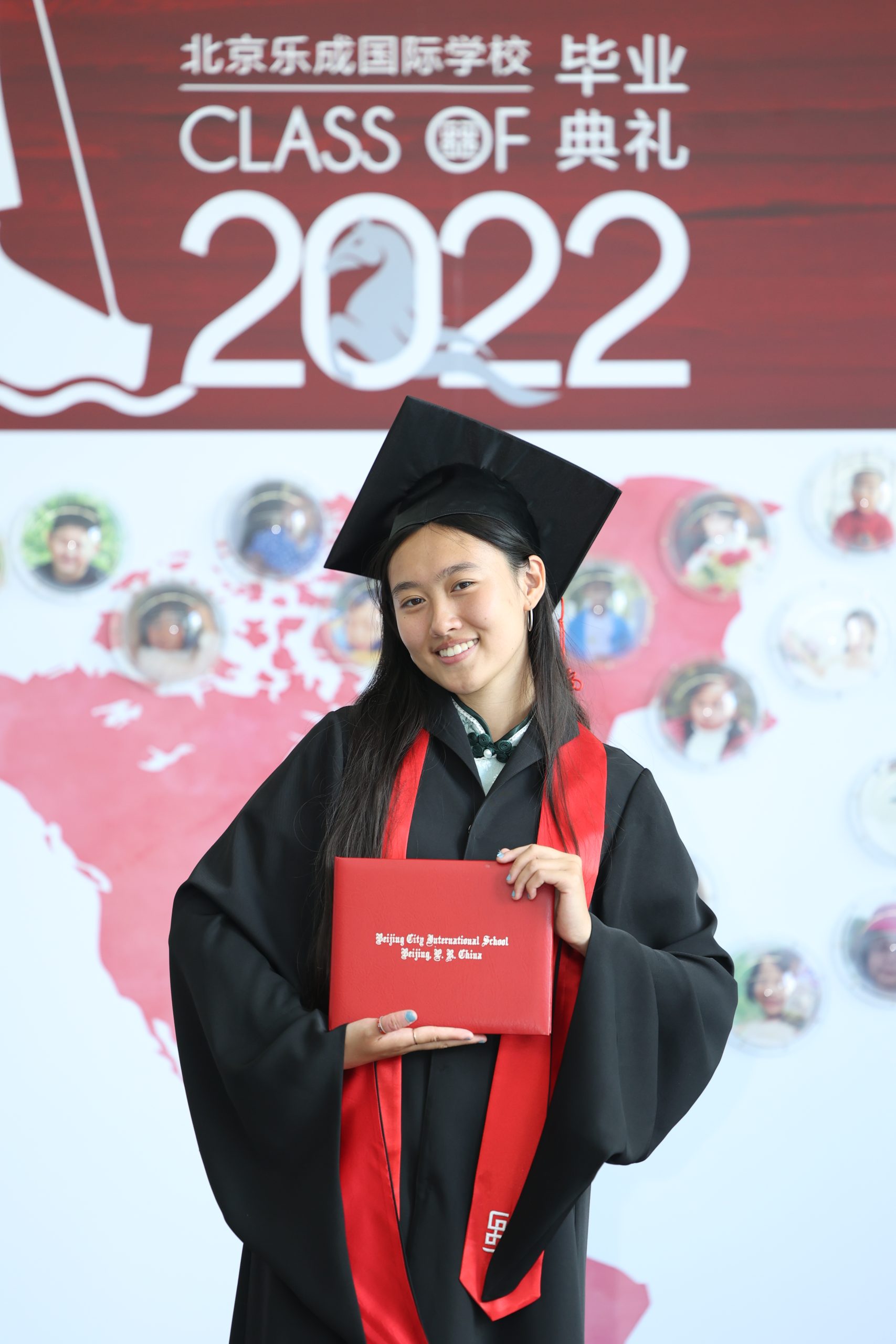If there is one thing families in Beijing never cease to talk about, it is choosing the right universities and colleges for students.
In the SAT prep classes, the parent rendezvous, and the graduation ceremonies, you can hear two polarizing views on higher education. Some think “big name” universities are the only means to gain an advantage in any career. Others find it useless beyond their first job after graduation. Once a student becomes a worker, no employer gives university titles a second glance.
Nevertheless, both views have one thing in common: The university experience itself is important. It can be life-changing, bland, miserable, or magical. The question really is, how should students choose universities?
Five high schoolers share their own university selection experience: From the midnight essays, the draining extracurriculars, the coffee-scented interviews… they have been through it all.
 Helena Zhao is a recent graduate from the Dulwich International School Beijing (DCB). Despite her Canadian nationality, she applied to universities in the UK and US. Eventually, England won over her heart. Her two dream schools, Oxford and University College London (UCL) are in London (obviously), a city Helena described to be a “melting pop of cultures and opportunities” with everything “at your fingertips”.
Helena Zhao is a recent graduate from the Dulwich International School Beijing (DCB). Despite her Canadian nationality, she applied to universities in the UK and US. Eventually, England won over her heart. Her two dream schools, Oxford and University College London (UCL) are in London (obviously), a city Helena described to be a “melting pop of cultures and opportunities” with everything “at your fingertips”.
Oxford and UCL have a traditional focus on liberal arts, which flatters Helena’s major of interest: philosophy. They also offer “tutorials”, which is a small circle of students led by a tutor to build individualized education. Moreover, Oxford has a “collegiate system” that locates students into smaller colleges, so they can connect easily with other likeminded classmates. Such luxuries are expected from one of the top tier institutions in the world, but ranking was not why Helena chose her schools. It was because she could “picture” herself “studying there for the next three years”.
Pro Tip: Research, research, and research! Helena urges everyone to attend virtual college fairs, tours, and panels. This way. students can follow their own “mind, heart, and soul”. The worst thing is succumbing to peer, parental, or societal pressure. Applicants are choosing their own lives, and therefore they know best.

Qinglan Du, a recent graduate from Beijing City International School (BCIS) is also headed to England. At four years old she had loved Cambridge because of its beautiful autumn leaves. Now at 18, she still loves Cambridge, but this time because of its excellent law program.
According to Qinglan, Cambridge is one of the few schools that offer law as an undergraduate program. If she chose a university in America, she would have to “choose an alternative major similar to law” before studying law in graduate school.
Pro Tip: Have a “there’s no harm in trying” mindset in applications. Safety schools should be taken seriously because it is important to “prepare for the worst”. Dream schools also need variety and diversity because one can have many dreams! In total, ten to fifteen schools is a good number.
 Chris Lu is a junior at Bates College in Maine, Massachusetts. He also graduated from BCIS, with an interest in history, education, and Japanese. These majors did not remind anyone of any career field, so Chris chose to go to a liberal arts college. Unlike most universities, liberal art colleges focus on undergraduate instead of graduate school. This is for curious and clever souls who need more time to decide on a career path.
Chris Lu is a junior at Bates College in Maine, Massachusetts. He also graduated from BCIS, with an interest in history, education, and Japanese. These majors did not remind anyone of any career field, so Chris chose to go to a liberal arts college. Unlike most universities, liberal art colleges focus on undergraduate instead of graduate school. This is for curious and clever souls who need more time to decide on a career path.
Bates College is a member of the New England Small College Athletic Conference, which is the Ivy League equivalent for liberal arts colleges. With a “less than 2,000 population”, the bond between students and professors is close, just like a precious family. This was exactly what Chris wanted, and worked hard to get.
He began to research since the end of grade 10 and finished TOEFL and SAT in grade 11. That is his first piece of advice: Plan early. Secondly, focus on GPA instead of standardized tests. “GPA is much more important than SATs”, Chris remarked, and this is especially true for IB students. Admission officers “love how difficult DP is, but not how watered-down SATs are”.

Finally, there is Linda Huang, another recent graduate from BCIS. Many would know her as a recurring Jingkids intern, and now she is setting off to Tufts University in Boston. Linda sees Boston as the perfect balance of urban life and rural quietude. Some of her family and friends already settled there, making it a safe environment for the 18-year-old who’s no longer a child but not yet an adult.
Linda is also a politics and international relations major. She chose Tufts because of its civic engagement and social justice groups. Students there are “open-minded, globally engaged, and passionate about things beyond personal wellbeing”. Building powerful social connections and meaningful friendships will not be a problem for Linda.
Pro Tip: Do not rely 100% on agencies. Many Chinese families use “agencies” to apply for colleges, hence the term “manufacturing kids”. Agencies run a highly capitalized market, cashing in on worried parents and ambitious students. They write essays, personal statements, and resumés for anyone who pays, and also help with prep, choosing extracurriculars, subjects, and career consulting.
Images: Courtesy of students, Pexels
 This article appeared in the jingkids 2022 Teen Takeover issue
This article appeared in the jingkids 2022 Teen Takeover issue




